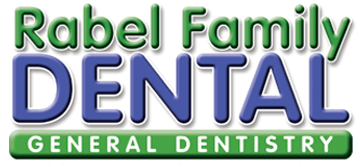You know that certain foods, such as sugary sweets and hard nuts, can endanger your smile. You may plan your meals to minimize the effects that common foods have on your oral health. However, you may think less about the beverages you pair with your favorite foods.
What you drink can have as much, and sometimes even more, of an effect on your smile as what you eat. Unfortunately, many individuals drink a wide range of beverages, from their morning cup of coffee to their evening alcoholic indulgence, without thinking twice.
This blog examines four types of damage that common beverages can cause and offers recommendations to protect your smile.
When you drink a beverage, the liquid washes over your teeth — and coats the surfaces in your mouth. As your smile experiences such long and thorough exposure to what you drink, beverages have a lot of opportunities to cause damage.
Common negative effects include the following.
1. Bad Breath
Many popular beverages have the side effect of reducing saliva production and causing oral dryness. A dry oral environment facilitates bacterial buildup. The first symptom of this issue you may notice is halitosis or bad breath, that doesn't go away even after brushing or using breath fresheners.
Beverages that dry out your mouth include alcohol, coffee, and tea.
2. Decay
The effects of harsh beverages may lead to a higher risk of tooth decay. For example, the bacterial buildup caused by oral dryness means that your teeth become more vulnerable to cavities.
However, acidic and sugary drinks come with an even higher likelihood of oral decay since acid and sugar stick to the surfaces of teeth and erode the enamel over time. Many beverages contain both acid and sugar, such as citrus juices and soda.
3. Demineralization
Mineralization is the natural process through which the body strengthens your teeth. When the acid from a food or beverage stays on the surface of your teeth, the body often can't provide enough minerals to the enamel.
Demineralization can result in white or dark spots that may develop into cavities. Demineralization can happen due to any acidic drinks, including flavored water, sparkling water, sports drinks, and soda. Even diet soda can increase demineralization since artificial sweeteners attach to the teeth just like refined sugar.
4. Stains
Many beverages have the potential to discolor your teeth. This risk increases when the beverage is particularly dark in color or sugary. You may notice stains if you drink a lot of coffee, cola, or red wine.
While many beverages can affect your smile, being proactive can protect your oral health. To reduce the effects of potentially damaging beverages:
- Brush your teeth between beverages when possible.
- Wait to brush your teeth after drinking a harsh beverage for at least 30 minutes to avoid exacerbating the weakening effects on your enamel.
- Drink water while you consume other beverages to help rinse the liquid off your teeth.
- Increase your overall water intake to wash away the majority of ingredients from other beverages.
- Moderate your intake of beverages other than water.
- Schedule routine cleanings and exams with your dentist at least once every six months.
If you drink a lot of alcohol, carbonated non-soda beverages, coffee, energy drinks, fruit juice, soda, sports drinks, or tea, then you should discuss other tactics you can use to safeguard your smile with
your dentist
during your next appointment.
Use these steps to ensure that you can enjoy your usual caffeine fix and favorite drink without worrying about the lasting damage that those beverages could have on your smile.
For expert dental care to treat, reduce, and prevent the damage caused by staples of your diet, trust the team at Rabel Family Dental General Dentistry.







